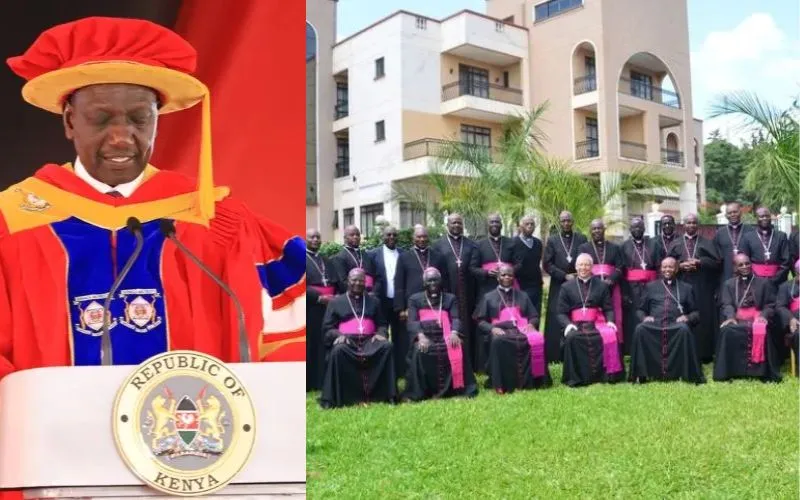Nairobi, 18 November, 2024 / 11:20 am (ACI Africa).
The President of Kenya, William Samoei Ruto, has expressed optimism that issues surrounding the highly contested New Higher Education Funding Model will be resolved.
His address comes a day after members of the Kenya Conference of Catholic Bishops (KCCB) issued a fiery statement on Thursday, November 14, calling out the government for ignoring “pertinent unresolved issues” the Catholic Church leaders said they had raised on numerous occasions, including the new funding model for Kenya’s universities.
A month ago, Kenya’s Catholic Bishops alongside other faith-based leaders in the East African nation had weighed in on the findings of an Infotrak research showing that the country is “headed in the wrong direction.”
Concurring with the findings and lamenting about the government’s failure to constitute the Independent Electoral and Boundaries Commission (IEBC), the growing trend of “ethnic mobilization”, rampant corruption that they said is “killing the soul of the nation”, frustrations around the “opaque and forced” transition from the National Health Insurance Fund (NHIF) to the Social Health Authority (SHA), Kenya’s religious leaders said that the new “controversial” university funding model has prevented many students from resuming their studies.
“What was so wrong with the previous model that it had to be changed?” Kenya’s religious leaders, who include representatives of the KCCB, (KCCB), the National Council of Churches of Kenya (NCCK), and the Supreme Council of Kenya Muslims (SUPKEM) questioned in their October 16 statement, and called for for a suspension of the new university funding system.








